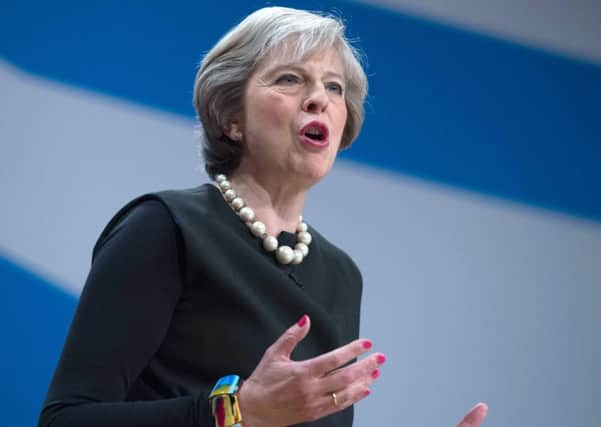Austin Mitchell: Why Britain will rise as the pound falls


On those rare occasions that the pound rises, government claims it as a consequence of their brilliant policies. When it goes down, as it is now, it is seen as a national humiliation and blamed on governmental failures.
The City of London has always wanted a high and stable exchange rate to acquire assets and manipulate money overseas.
Advertisement
Hide AdAdvertisement
Hide AdGovernments tend to share this view and usually struggle to avoid devaluation, as Harold Wilson did by two economic freezes which ruined his government and his plans for growth in the 1960s. Now the recalcitrant Remainers claim that the present fall is yet another dire consequence of Brexit and a symptom of worse to come.
All nonsense.
The exchange rate isn’t a national symbol but a market-clearing mechanism. A competitive rate is not whatever rate governments want it to be, but the rate which allows Britain to clear the market and balance its books in conditions of rising growth and full employment.
Anything else damages both. Too high and unemployment rises and the trade balance suffers. Too low and the economy overheats, though that’s a rare condition in Britain. Our penchant is for a high, and usually over-high, rate.
It follows from this that the current fall, which began well before Brexit and has been accelerated by the loss of confidence after it, is a necessary and inevitable consequence of Britain’s inability to pay its way in the world.
Advertisement
Hide AdAdvertisement
Hide AdWe import more than we export. The result has been a growing balance of payments gap which has now risen to a record seven per cent of GDP. That can be sustained only by borrowing overseas and by selling British companies, property and assets to foreigners to bring money in to fill the gap. Both are finite processes and damaging to the economy. They can only be ended by a fall in the exchange rate to redress the balances.
Devaluation is not only the only way out of this trap. It’s a benefit in itself for the real economy of producing things in this country and selling them abroad. Foreign holidays will become more expensive. Instead of splashing out on holidays in Dubai and villas in Italy, Britons will go for holidays in Scarborough and bathing huts in Brighton. That staunches the flow of money out and makes Britain a less expensive place for foreigners to come and enjoy the rain in Manchester and boarding houses in Bridlington.
That’s the key to the cure. Devaluation means that our exports, which have been overpriced and lost too many markets as a result, will fall in price while imports become dearer.
The price mechanism then shifts the economy into producing more at home and buying less abroad. This happened after Britain’s previous devaluations – Labour’s in 1949 and l967 and the two Tory ones in 1972 and 1992. After each, the economy perked up, exports rose and Britain enjoyed a burst of recovery which was extinguished only when the pound was allowed to rise.
Advertisement
Hide AdAdvertisement
Hide AdCritics argue that the fall in the pound will raise inflation to unacceptable levels. It didn’t after our previous devaluations and shouldn’t now. Importers will cut their prices to hold market share while the oil companies will be forced to reduce the inordinate level of profits they’ve made by keeping prices at the pump higher than the market warranted.
In any case, there is no alternative to the fall we’re experiencing now. We can’t go on running a balance of payments deficit which must eventually make this country a poor subsidiary of overseas interests and a major debtor whose credit card can be suddenly refused. It doesn’t solve all our problems, but it allows us to tackle the major one that our costs of production, and the prices of the goods we produce, are too high.
What we need to do now is what most other countries have done before – that’s to seize the benefit of our new competitiveness with an industrial policy and government support for our exporting industries.
Austin Mitchell is the former Labour MP for Grimsby.